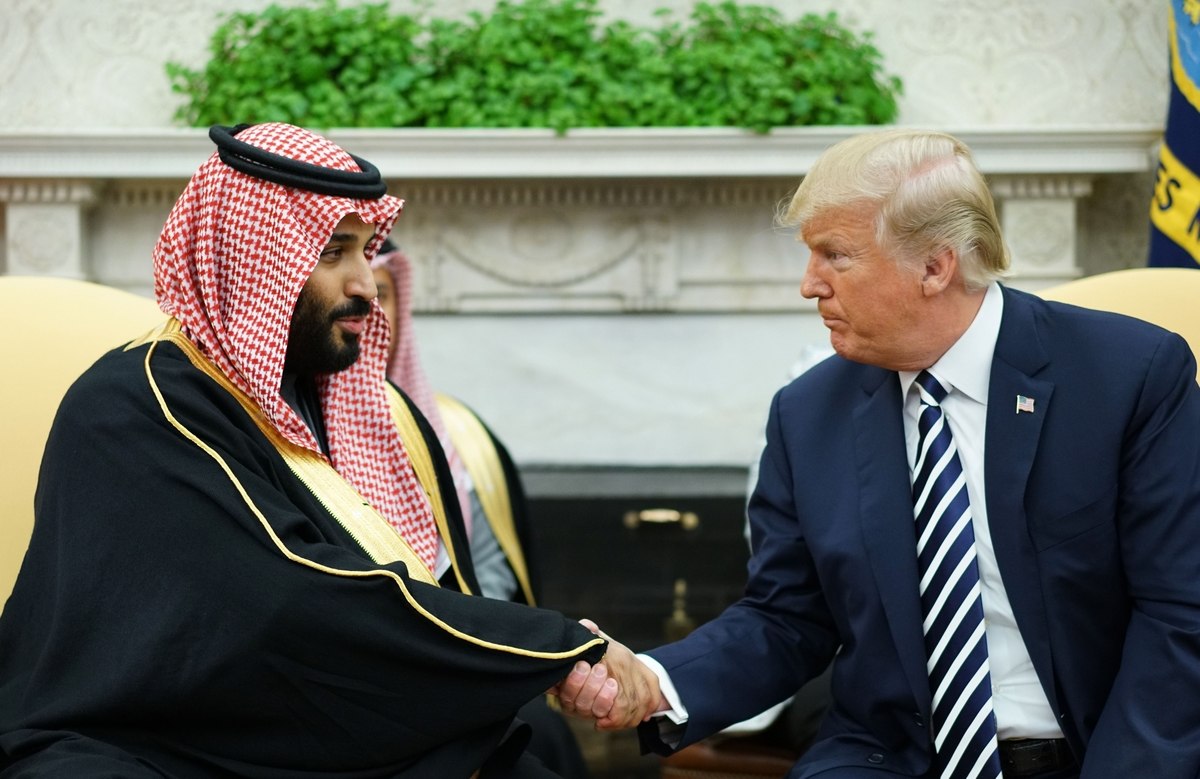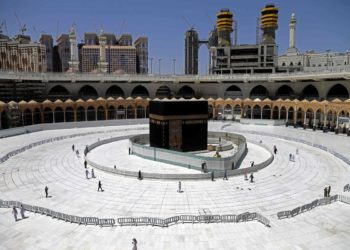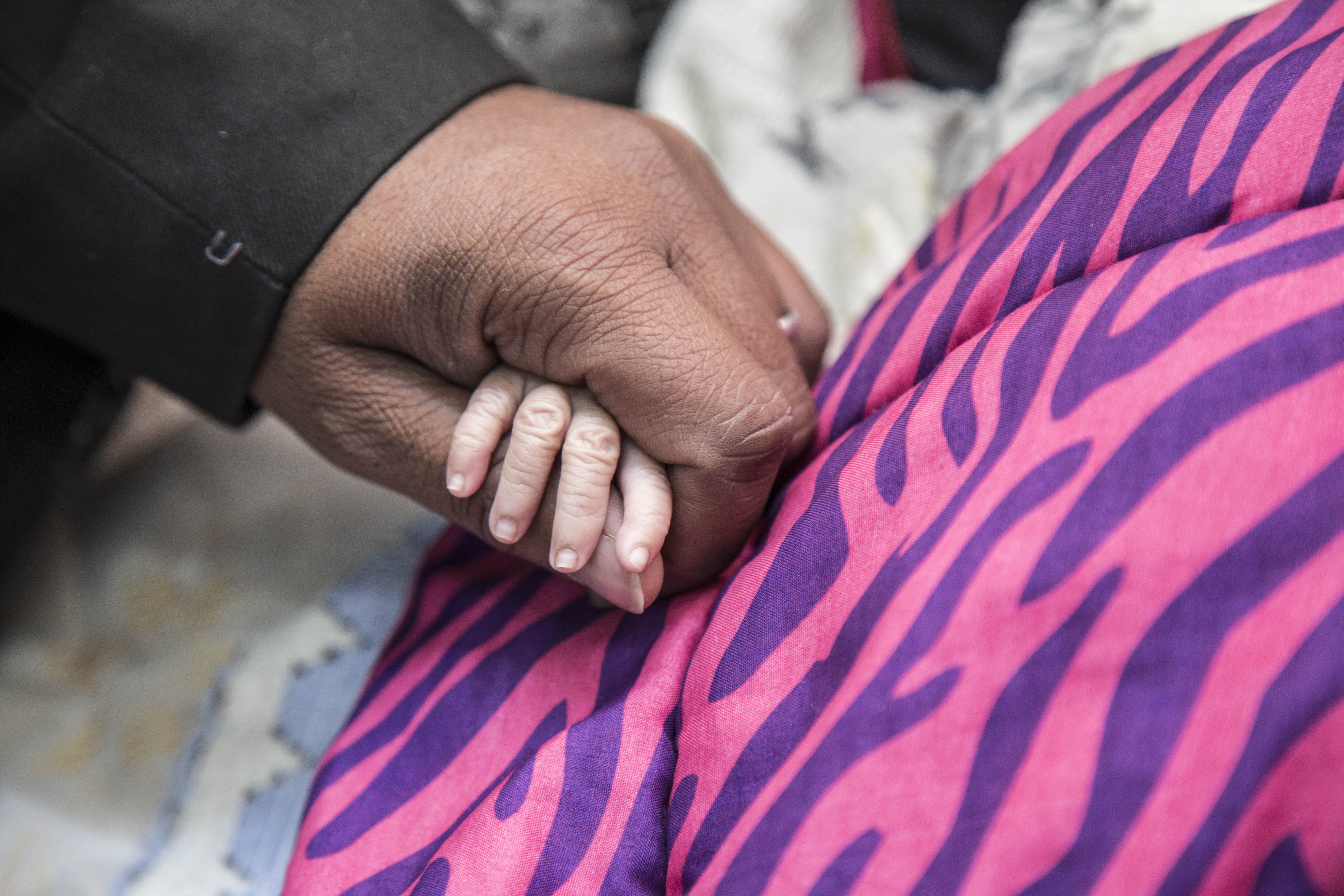With 633 words and no less than 8 exclamation marks, President Donald J. Trump’s statement on the killing of Saudi dissident journalist Jamal Khashoggi triggered a set of fierce reactions, ranging from astonishment to disagreement, disappointment, and even disdain. While much could be said about the bad and the worse within this statement, it had an unanticipated positive outcome too.
In his much-discussed statement, Trump evaded and dodged the Saudi Crown Prince Mohammad bin Salman’s responsibility for the brutal murder by indicating that “maybe he did and maybe he didn’t!” Many saw this reaction as very weak and disappointing, especially after a CIA report concluded with a “high degree of confidence” that it was the crown prince himself who ordered the killing.
Trump insisted that King Salman and the Saudi crown prince “vigorously deny any knowledge of the planning or execution of the murder of Mr. Khashoggi” and that the CIA didn’t reach any decisive conclusion on this matter, rather, it simply had “feelings” about it. This led many to contend that Trump was “giving Saudi Arabia a pass.”
The Bad: Contradicting the CIA and Compromising Moral Leadership
The clear contradiction between Trump’s position and the CIA’s report is the first worrying element of the statement. This led a number of senior Democrats in Congress, such as California Senator and Chair of the House Intelligence Committee Adam Schiff, to conclude that the president was being “dishonest” about the matter.
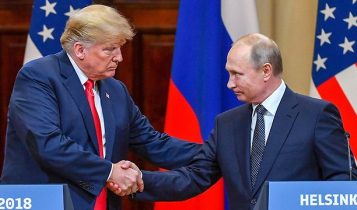
It is alarming that the president attempts to, again, believe an authoritarian and undemocratic foreign power over his own intelligence, just like he did with Russia before. During the highly controversial Helsinki Summit, Trump’s answer to a question about Russian interference in the 2016 elections was that President Vladimir Putin assured him many times that “he didn’t do it.” Trump expressed his doubts about Russia’s meddling, despite assurances and evidence from the American intelligence community confirming this meddling and its continuation.
This contradiction with his own intelligence doesn’t only weaken the credibility and believability of American intelligence, it, most importantly, weakens the credibility of the United States in the eyes of the international community. It also shakes the U.S. position of moral authority, as it is perceived to be bowing down to dictators, at the expense of the truth.
This is a slap in the face to the American intelligence officers who work daily to protect our country.
And it’s yet another fawning prostration to a foreign authoritarian. It’s only a matter of time until actions like this by the President directly threaten our security. https://t.co/raUfhTh96q
— Tim Kaine (@timkaine) November 20, 2018
By compromising America’s moral leadership as the sole superpower in today’s modern world, the leader of the free world, the beacon of democracy, and the protector of human rights, Trump not only diminishes the status of his own country, he also emboldens brutal dictators and enables ruthless autocrats.
When the leader of “the home of the free and the land of the brave” fails to take a strong position on such a horrific violation of human rights, which goes against every moral doctrine and each human rights accord, he sends a message to these dictators that they can get away with any crime, no matter how gruesome it may be, as long as they can strike the right deal with him.
The newly elected first American-Muslim Congresswoman Ilhan Omar stated her strong objection to this weak position on the part of President Trump by tweeting “Once again, our President proves that you can’t buy a moral compass. And Saudi Arabia proves that you can, on the other hand, buy a President.”
The Worse: Petrodollars over American Values and Inaccuracies
This tweet draws attention to what is worse about Trump’s statement: Putting Saudi petrodollars above American values, by adopting a policy which prioritizes oil, trade, and arms sales over America’s best interest and its moral standing.
Contrary to Trump’s famous slogan “America First,” such a weak foreign policy is most likely to put “Saudi Arabia First,” by creating the myth that America has no leverage when it comes to financial dealings with Saudi Arabia, whether regarding buying oil or selling arms.
President Trump contributed to this fallacy by infusing his statement with inaccuracies, including the exact amount of financial dealings with Saudi Arabia. Trump indicated that “the Kingdom agreed to spend and invest $450 billion in the United States,” while the correct figure is estimated to be much smaller.
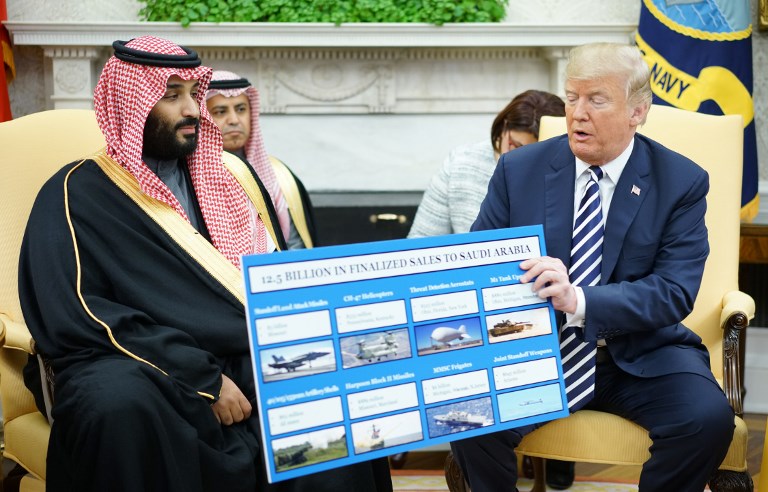
His claim that if the Saudis do not buy arms from the United States they will turn to Russia and China instead is equally untrue, since Russian and Chinese weapons are behind American weapons, in terms of their capabilities and novelty. This means that the Saudis will certainly continue to need American weapons, even if the American president takes a firm moral stand on Khashoggi’s murder and whoever is behind it.
If that’s the case, the next logical question is “So, why didn’t he do that?!” There are two possible explanations here, one is economic and the other is political.
The first explanation is that it is not about “America First” or “Saudi Arabia First.” Rather, it is about “Trump First.” The proponents of this position refer to Trump’s personal business dealings with the Saudis over many years. Trump often bragged about this when he was running as a presidential candidate but vehemently denies it now.
They also refer to the business dealings between the Saudis and Jared Kushner, Trump’s senior adviser and son-in-law, especially taking into account Kushner’s close relationship with the Saudi crown prince.
This, of course, brings a completely different perspective on the whole issue. Instead of the patriotic leader who is putting his country “First” and is trying to “Make America Great Again,” Trump can now be viewed as a self-interested and nepotistic businessman, who has little regard for what is best for his own nation and its international image. This clearly invites the question of “conflict of interest” on the part of the president and his family members.
The second explanation is that it is not just about money, rather, there is also a political aspect. This involves geostrategic interests, something that shouldn’t be neglected or overlooked. Trump expressed this in this statement when he highlighted and prioritized the role of Saudi Arabia in providing a strong line of defense against Iran.
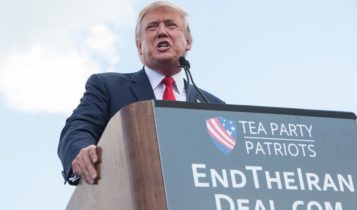
He described Saudi Arabia as “a great ally in our very important fight against Iran,” and indicated that “the United States intends to remain a steadfast partner of Saudi Arabia to ensure the interests of our country, Israel and all other partners in the region.” It is no secret that Trump, who always defined himself by his anti-Obama policies from day one, has been very critical of Obama’s Iran nuclear deal, and, therefore, unilaterally withdrew out of this deal.
By adopting a hawkish and antagonistic position against Iran, which is intended to appeal to the right-wing, pro-Israel lobby in the U.S., Trump desperately needs the support of Saudi Arabia, as a strategic power in the Gulf region and a major geopolitical ally in the Middle East, to counterbalance Iran in case of any future military confrontation.
The Unanticipated: Democrats and Republicans Unite
Despite the previously mentioned criticisms of Trump’s statement and their negative consequences, one unanticipated positive outcome emerged: the agreement between Democrats and Republicans, despite their ideological differences, which became especially more evident since the beginning of Trump’s presidency.
In this particular case, many policymakers across the aisle were united in their position on this issue and in expressing their objection to Trump’s statement on Khashoggi, which some Republican Senators described as “so weak,” urging “a tougher stance on Saudi Arabia.” Many bipartisan voices called for a transparent and independent investigation to reveal all the facts surrounding this brutal murder.
The Democratic majority House of Representatives that will take over in January 2019 as a result of the midterm elections makes this last point especially important. The newly formed House is expected to more serious play the watchdog role over the president, thus, upholding the principle of “checks and balances” in U.S. politics and ensuring maximum accountability on the part of the highest office in the land.
Giving Ruthless Dictatorial Regimes a Pass
How far and how much all of these factors will change President Trump’s foreign policy, his handling of international affairs, his policy towards Saudi Arabia, and his position on the “Khashoggi Affair” remains to be seen.
What we have clearly seen, however, is a weak reaction to a horrific murder, which not only harms the U.S. image worldwide, shakes its status, and threatens its moral leadership, it also gives a pass to ruthless dictatorial regimes.
This sends a chilling message to many of these regimes’ opponents and exiled critics. What Trump could, and should, have done was issuing a firm statement, not only strongly condemning the horrible act but also siding with his own intelligence in strongly condemning those behind it. This wouldn’t weaken America’s interests. Rather, it would put them “First!”
Disclaimer: The views and opinions expressed here are those of the author and do not necessarily reflect the editorial position of The Globe Post.

